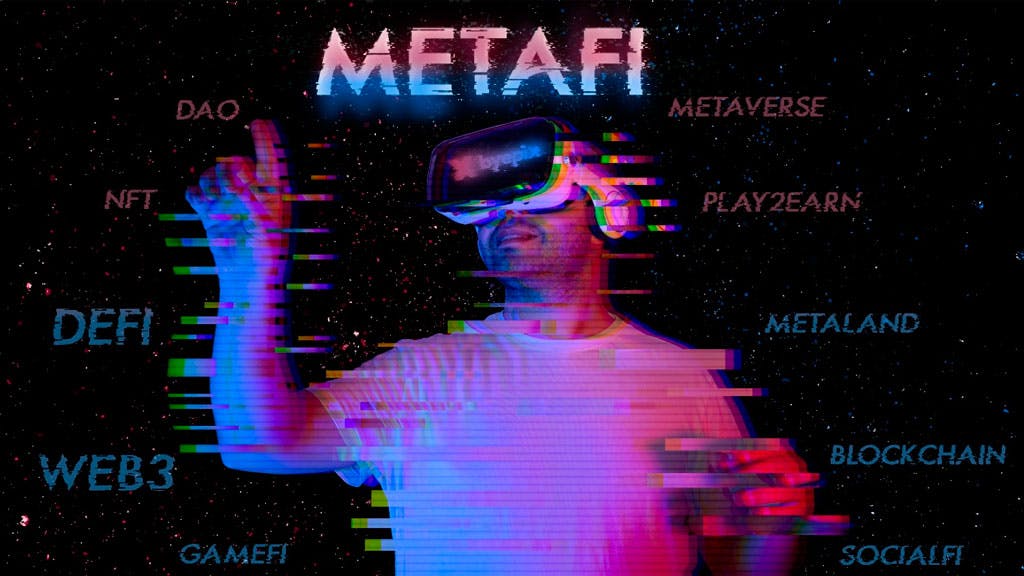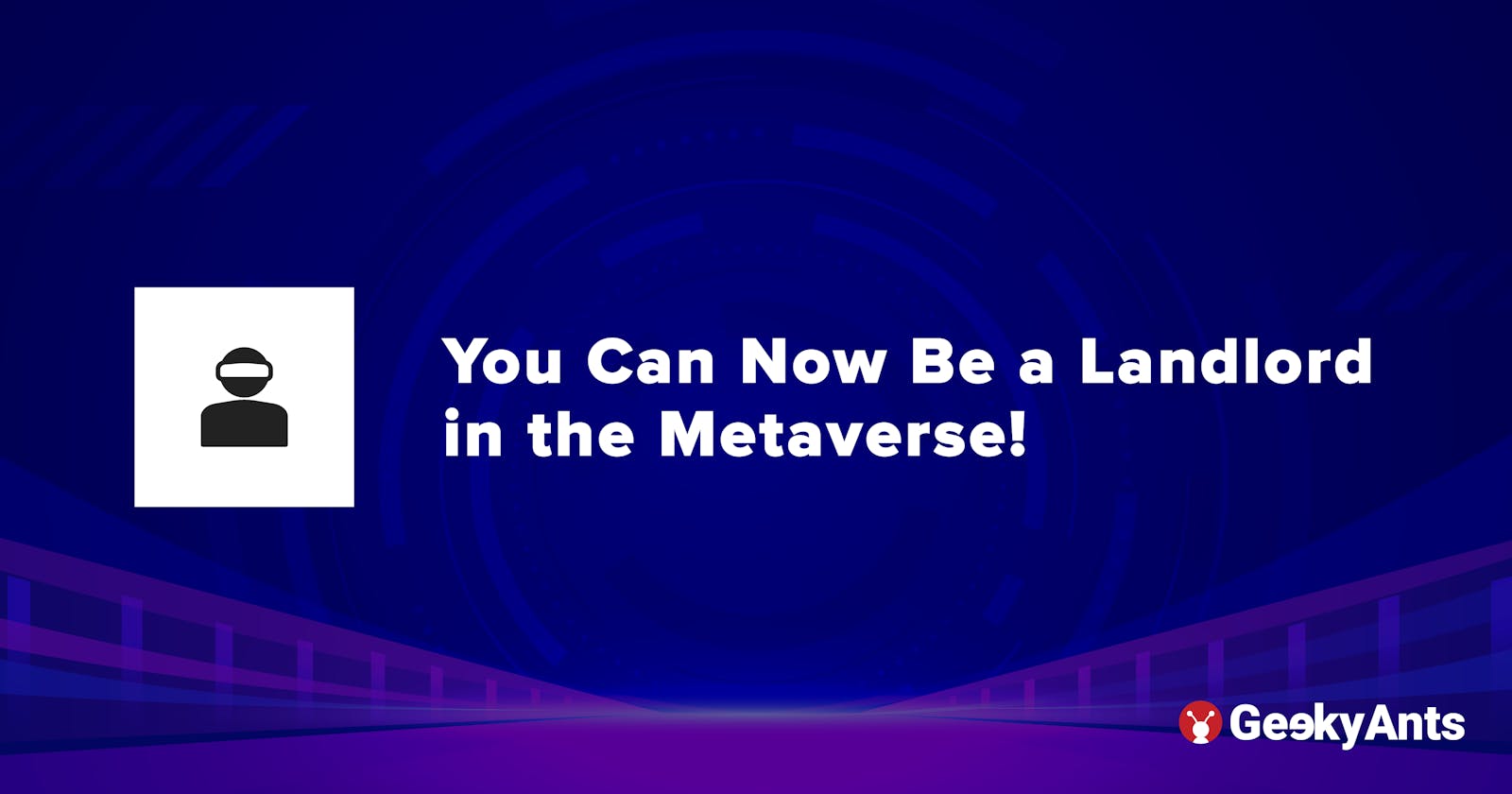You Can Now Be a Landlord in the Metaverse!
The Metaverse is the newest buzzword and some investors are scrambling to purchase a virtual property.
The metaverse is heating up. Not hot, like a delicious meal or a hot dog! This mostly fictitious virtual world is becoming as hot as the real estate market because it has recently been one.
The metaverse, powered by cryptocurrencies, is undoubted, the most enticing incentive for real estate investors. Many people are surprised by the concept of virtual lands, but for those familiar with games like Clash of Clans, or The Sims, it may not seem that strange. However, in recent months, Tokens.com, a crypto investment firm, has paid $2.43 million for a block of property on Decentraland. On the Sandbox platform, a parcel of virtual land recently sold for a record $4.3 million.
The real estate metaverse is expected to take off.
Let's briefly define land in the Metaverse for those who don't know what it is. In the Metaverse, a parcel of land is essentially a piece of virtual real estate represented by a Non-Fungible-Token. Because every parcel of land in the Metaverse is on the blockchain, its validity can be easily checked. Virtual land, like real estate, is purchased for a price that is primarily comprised of cryptocurrencies. These tracts, also known as NFT Land, are either offered in virtual real estate projects or can be purchased on third-party marketplaces such as OpenSea.

Metaverse Group, which manages the virtual world Decentraland, was one of the first to enter the digital real estate market. Token.com, the parent business of Metaverse Group, revealed last week that a "116 parcel estate in the heart of the Fashion Street section within Decentraland" sold for the equivalent of roughly $2.5 million - a record! If Louis Vuitton wants to construct a store along Fashion Street, the new owner of this site may profit: they could effectively be the brand's virtual landlord.
The metaverse is a digital universe with no borders. Consider a universe in which you can shop, buy, and explore — and potentially do everything you do in real life. It should be highlighted that it is not a replacement for reality but rather improves how you see things in digital space.
What exactly are the Lands in the metaverse, and why are they so popular?
Real estate in the metaverse is an expensive business, similar to real estate in the real world, where values are determined by location, population, and the demand and supply ratio—when there is an increasing demand for a plot in the metaverse in a specific area, the prices automatically rise.

Snoop Dogg, a well-known rapper, revealed that he would be creating his own metaverse virtual world on the Sandbox platform. There are also 1,000 private passes for around $5,700 a piece that customers can purchase "to walk into Snoop Dogg's lifestyle," which gives them exclusive perks such as admission to a private virtual party and the possibility to have Snoop Dogg perform "on your land." Nothing screams "welcome to the neighborhood" as a ticketed pool party billed as "a once-in-a-lifetime chance to party with the Dogg and ask him any questions you want."
Paris Hilton, who established a virtual island on Roblox and performed an electronic set for revellers last New Year's Eve, is another celebrity who is highly invested in the metaverse. Tommy Hilfiger, Nike, and Reese Witherspoon are among the other businesses and personalities who have endorsed the metaverse.
Someone just paid $450,000 to be Snoop Dogg's metaverse neighbor, which is a perfect example of the buzz that real estate in the metaverse has engendered.
Why Would You Buy Land in the Metaverse If It Costs the Same as It Does in the Actual World?
This buzz begged the question: why would you buy land in the metaverse if it costs the same as real-world plots? The fundamental reason is that the return on investment is substantially higher than for real-world plots. ROI can reach 1000 percent in a shorter period of time.
Second, blockchain technology makes it difficult for land fraud to take place. Blockchain technology is essentially a distributed ledger, meaning every transaction is recorded, increasing transaction transparency. This reduces the possibility of real estate frauds such as forced cancellation, selling without authorization, false promises, and possession delays.
Imagine being able to acquire your dream piece of land through loans, which is something that DeFi can help you with. DeFi, or Decentralized Finance, is essentially an entity that may facilitate the borrowing and lending of bitcoin in exchange for collateral. In the case of the metaverse, the collateral may be an NFT you purchased or your crypto assets. It would be incorrect to compare DeFi to banks because, unlike banks, anyone can borrow crypto assets without the need for any KYC paperwork (without any credit check), and all transactions are automated with the use of Smart contracts.

On the other hand, there is the view that location is unimportant. After all, the entire point of the metaverse is to be able to teleport anywhere, which leads some investors to question the genuine value of the land. Some even claim it will all be for naught since, unlike on Earth, where land is restricted, the metaverse is unlimited, making location less significant.
Conclusion
So, while the concept of purchasing property or real estate in the metaverse and maybe living next to or near your favorite celebrity seems appealing, think carefully before dropping (your money) like it's hot. This post is not intended to persuade you to buy or invest in any metaverse; rather, it is intended to inform you about the virtual real estate bubble.

